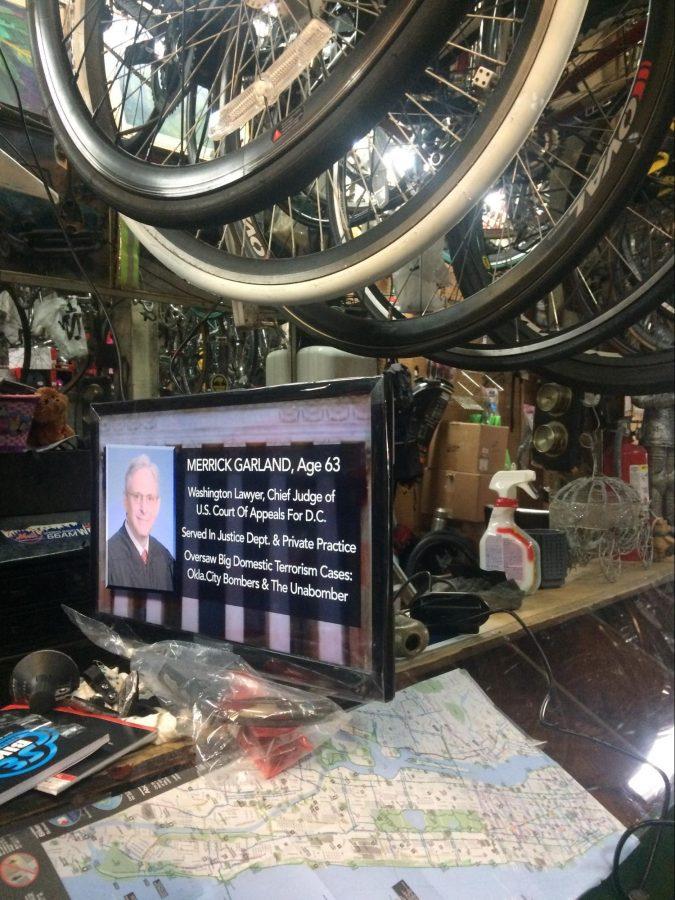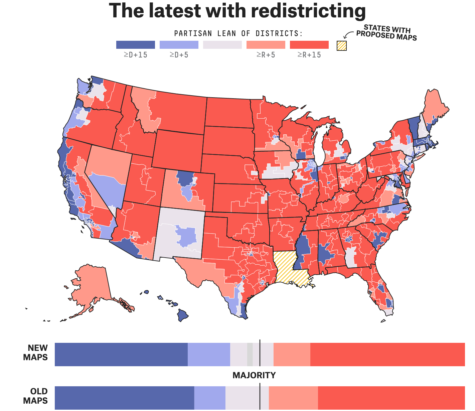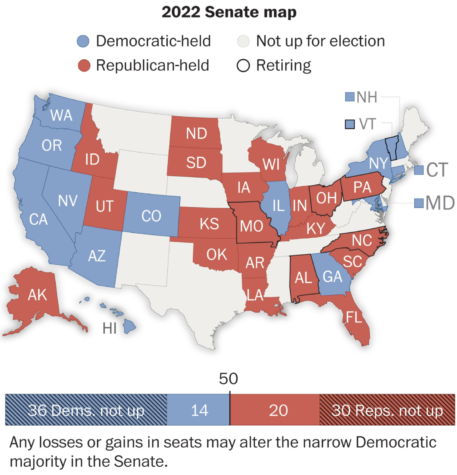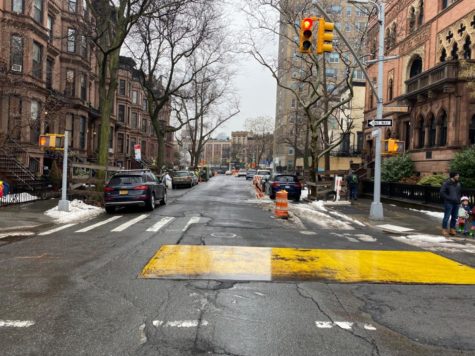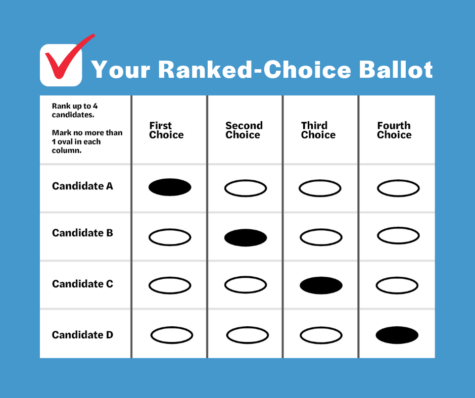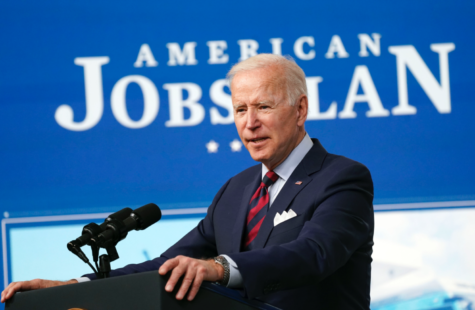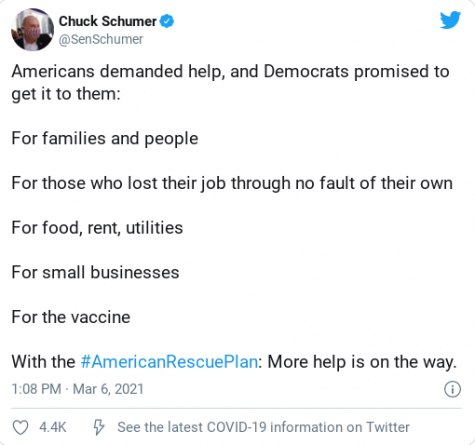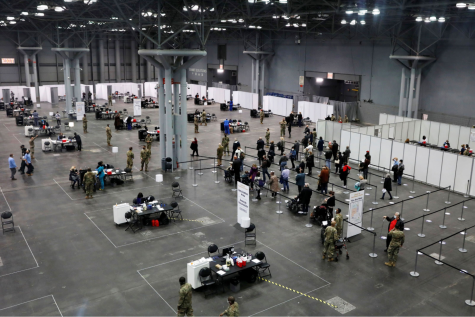Special Report: Journalism 101 Takes on the Election
The Journalism 101: Campaign Reporting in an Election Year spring intensive spent the two weeks of March 14-25 examining media coverage of this year’s presidential election, in Brooklyn in beyond. They learned about polling, political cartoons, ethics and bias, and most importantly, how to write hard news and feature stories. Below you’ll find some of their stories, looking at attitudes about the election in Berkeley Carroll and the surrounding areas.
Blocks Away, Miles Apart: Politics in Park Slope
By Sara Azcona-Miller
PARK SLOPE, Brooklyn, NY — The smell of rubber tires fills Dixon’s Bike Shop, the family-owned business that has been in Park Slope for over 45 years. Bikes hang from the ceilings. A small television is on and the words “Obama Nominates Merrick Garland” take up the screen. David Dixon, the co-owner of the shop and a man with a loud laugh and ready smile, is captivated.
The phone rings, but Dixon ignores it. With the election coming up, Dixon watches the campaign coverage everyday from his desk at work. When asked to share his views on the presidential election, Dixon stated, that it is “a big mess in this day in time. After years of elections I would think that the pettiness and childness should be out the door.” Dixon, like many other Park Slope business owners, is currently making the decision on whether to support Sanders or Clinton, but as of now, he is leaning towards Clinton. “I would love to see a woman president, she [Hillary] knows the business.” When questioned about Hillary’s inconsistency in terms of her stance on policies, Dixon responded by saying that “she’s just a team player.”
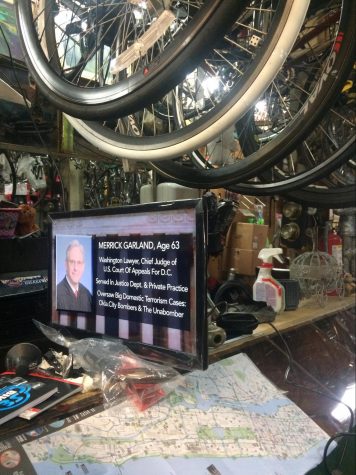
Although they work only a few blocks away from each other, Joseph Volpicelli’s views differ from those of David Dixon’s. Volpicelli, 73, who speaks with a slight Italian accent and sports a long gray moustache, is the owner of Joseph’s Haircutting Salon. He began working there in 1961, but he guesses that the salon, complete with a traditional red, white, and blue barber pole, has been around for 100 years.

When asked about which candidate he supports, Volpicelli chuckles and exclaims, “none of them!” He then looks around to check if anybody is listening, puts his hand over his mouth, and quietly says, “Well, I’m a registered Republican.” Volpicelli then went on to reveal that at the moment, if he had to choose one candidate, he would pick John Kasich because he is “more moderate and straightforward.” The barbershop owner added, “Trump is wacky” and that “every time she [Hillary] screams, it makes me crazy!” He repeated the latter point multiple times, laughing, and covering his hands with his ears for effect.
David Dixon and Joseph Volpicelli lie on opposite ends of the political spectrum, but both expressed dissatisfaction with the 2016 presidential election. This year’s campaign trail has been full of jaw-dropping moments and crazy characters, with national debates sometimes resembling reality tv shows. While this provides entertainment, many Park Slope business are balking at the idea of certain nominees stepping into office. However, the New York primaries are creeping up, and on April 19th, Dixon and Volpicelli, along with many other New Yorkers, are going to have to make a decision.
Make Berkeley Carroll Great Again?
Students Shocked by Hidden Trumpites
By Claire Dunn
In a recent presidential poll of the Berkeley Carroll community, Senator Bernie Sanders emerges from the election with a smashing 54%, and is followed by Hillary Clinton with 39%.
Democrats at Berkeley Carroll were not surprised to hear that Senator Sanders won the poll. Vanessa Prescott, Director of Admissions and 9th Grade Dean, expected to see Sanders pull ahead in the poll, although she isn’t sure who she is going to vote for. “America hasn’t shown themselves as a society that they are ready for a female president,” says Ms. Prescott. Unlike many females at Berkeley Carroll, Ms. Prescott doesn’t believe Hillary Clinton would be suited to be president right now, because the sexism she would face could prevent her from achieving her goals.
Similar to Ms. Prescott, freshman Francisco de Jesus is not sure who he would vote for in this election. “It’s not going to be a blowout or anything. It’s going to be close between Clinton and Sanders,” Francisco says. A large number of students agree that they could see the election turning out in many different ways, and they wouldn’t be surprised if Sanders or Clinton won.
Although sometimes lost in the sea of Democrats at Berkeley Carroll, each Republican candidate was represented in this poll. Out of the 225 votes, Donald Trump gained 7, Marco Rubio had 6, and Ted Cruz and John Kasich each collected one vote. Many students at Berkeley Carroll were shocked to hear that Donald Trump collected 7 votes, although it is only 3% of the votes.
Violet Denckla, freshman and Bernie Sanders supporter, was surprised and alarmed to hear that there are a few Trump supporters at Berkeley Carroll. “Not only are Republicans minorities at Berkeley Carroll, but if they are voting for this year’s candidates then they must be very confused,” Violet said, gesticulating with her hands.
Like Violet, many upper schoolers have trouble understanding why someone would vote one of the Republican candidates this election. Republicans are hidden at Berkeley Carroll, making it harder for them to voice their opinions.
93% of Berkeley Carroll’s upper school voted for the two Democratic candidates. The 7% of Republicans are less represented at Berkeley Carroll, and have much less of a say.
Bathing in the sun in the Berkeley Carroll courtyard, Charlotte Lombard, sophomore and Bernie Sanders supporter, has a lot to say about this. “Republicans at this school definitely do not have a voice,” Charlotte voices. “Our school is very aggressive Democratically, and Republicans are usually not heard,” she adds. Republicans in the BC community are definitely a minority, and unheard by their peers, but each Republican candidate was represented in this poll, bringing some confusion to the rest of the upper school.
Park Slope, Political Voice, and the Presidential Election
By Maija Fiedelholtz
PARK SLOPE, Brooklyn, NY — On a sunny, warm spring day in Park Slope, toddlers trot down the avenues, well-trained puppies walk adjacent to strollers, and bicyclists buzz across the streets. Groups of parents corral their kids as they walk into the food coop, known for its organic food and good prices. The sidewalks are for the most part trash free and everything is well kept to the point that it’s almost too perfect.
Myrna Johnson, who has lived in the neighborhood since 1990, gesticulated with her hands as she said, “Everything has changed since 9/11–the economy, everything.” Johnson has worked at Area Kids, a children’s toy store, for 6 years.
With the presidential election nearing, people like Johnson are looking for a presidential candidate that can get them the economic help and social change they need. “I need help and I can’t get it because I am in between. I need a balance between policies for middle income, low income, and high income.”
“Sanders’ policy–I don’t think will materialize,” she said as she stacked boxes of children’s shoes and pushed stuffed animals back onto their shelves. “He promises free education, but I don’t think it will materialize. It has to be passed by the Congress and approved by the Senate.” On the other hand she said, “Hillary has a lot of experience as far as international foreign policy. I would vote for Hillary.”
Johnson is looking for the most ideal candidate for her economic situation and is passionate about educational opportunities. She wants someone who can help people like her, who are “in the middle.”
Johnson encourages people to vote; she thinks that if you are lucky enough to live in a democracy, “you should vote because other countries don’t have the privilege to vote”. She is grateful to be in the US where she can have a voice, versus her home country where “there is corruption”.
Similar to Myrna Johnson, David Dixon, ‘the guy’ from family-owned Dixon’s Bike Shop on Union Street, cares deeply about his political voice; however, Dixon is disappointed with this year’s election. “After years I would think that the pettiness and the childish games should be through the door.”
Dixon’s shop has been around for decades and holds true to an authentic Brooklyn bike shop. The walls are filled with bicycles of all different shapes and sizes and a rubber aroma follows your every step. The phone rings every five minutes with someone on the other end calling about a repair. In all the commotion, on a small TV in the corner, Obama nominates Merrick Garland, the new Supreme Court justice.
Politics are a “big mess in this day and time” Dixon said as he shook his head no. For Dixon, the Republican candidates are out of the question. He is between Hillary and Sanders, but he is leaning towards Hillary.
“I would love to see a woman president, [Hillary] knows the business”
Dixon adds, “women and men think differently…women wouldn’t be so quick to go to war.”
It doesn’t bother Dixon that Hillary has changed her views from what they were in the past. “I think the reason why Hillary supported the war before was because of the position she was in.”
“She’s just a team player,” Dixon explained. “If you were on one team, like Hillary was before, you would want to beat the other team, and you would do what you could to do so. You might have changed your views to side with that team, but Hillary is playing for a different team now.”
Where is the Fear in the Election?
By Eugenie Haring
According to many Republican candidates, rapists and drug dealers are running across the Mexican border, Planned Parenthood is murdering children, and all Muslims are out to kill us.
In the 2016 presidential campaign, the Republican debates have been overrun by language about fear such as Ted Cruz declaring that “the whole world is on fire.” Donald Trump also makes wide generalizations, including that Mexicans coming over the border are “bringing drugs, they’re bringing crime, they’re rapists…” embedding fear in the minds of his supporters.
This fear inducing rhetoric is affecting BC students, too. Many BC Democrats, like 14-year-old Jona Inniss, fear that “America would be set back if Donald Trump was elected” in that his being president could open the floodgates for people similar to Trump. “I mean if a reality TV star can be president then…” Inniss added. Others, like Zoe Contrubis, 14, fear that “gay marriage and stuff like that will go down the drain” if Trump or Cruz is elected.
While some fear action, such as building a wall or banning Muslims, others fear inaction. Some of those who backed up Bernie Sanders, like 15-year-old Katsy Weber, “believe in a lot of his ideals” but feel that “the amount of money he wants to spend is very ambitious and he wants to [implement] lots of tax cuts.” They fear that Sanders’ ideas are pragmatic but unachievable and that we need, as senior Emma Raible put it, a candidate who “can get us out of political gridlock.”
Many, worrying that Sanders is an unrealistic candidate, have turned to Hillary Clinton for set policy and plans. However, some fear that Hillary’s changing stance on subjects such as gay marriage show unreliability. Some fear that Hillary is shifting her image to fit what the people want, like Aaron Goldin, 17, who is “not a fan of [Clinton’s changing position]” because he feels that “she manipulates her voters because she changes her opinion and [you] don’t know if it’s her final decision,” Goldin even added that “[Clinton] seems a bit false.” Zoe Contrubis also said that “Bernie Sanders has stuck with his ideas fo so long,” making him a reliable candidate who will not flip-flop based on what is most popular at the time. In Aaron’s case, his belief that Sanders is an “extreme socialist,” and that Clinton is “politically flawed” have led him to support John Kasich; while he does not support many of Kasich’s ideas, Aaron believes that he is the “most moderate” of the candidates.
Mostly, BC students just fear for the future and what these candidates might bring, Zoe Contrubis shared: “I have fear for other generations.”
Feminism: From High School Hallways to the Presidential Election
By Logan McGraw
At a recent Berkeley Carroll morning meeting, feminism pulsed through the performance space at Sterling Place. During a course description and presentation by ‘yonce and Cosby and T. Swift, Oh My!: Pop Culture and the Construction of Gender, students read off slips of paper describing why they are proud feminists. Madison Eve, a freshman, said, “I am a feminist because fourth wave feminism begins now and I want to be a part of the change that it brings.” Cheers and claps radiated after Eve and other students gave their reasons. Later that day, In a survey sent out to BC high school students by ‘Yonce and Cosby and T. Swift, 63% of the 95 people who took a survey conducted by Eve’s class identified as feminists.
Despite the widespread support for feminism at BC, the majority of BC students do not support Hillary Clinton, who hopes to be the first female president. In a recent poll of Berkeley Carroll students, Clinton lost to Bernie Sanders, earning just 39% of the vote. There are many Berkeley Carroll high school students who consider themselves feminists but don’t support Clinton. Madeline Albright, the first woman to become secretary of state, recently shared her thoughts on how she believes women are obliged to vote for Clinton in a New York Times article, stating, “There’s a special place in hell for women who don’t help each other.” There has never been a female president, and many think it is most definitely time for one. But does this mean that feminists must vote for Hillary? Should gender roles determine who you should vote for? If you identify as a female, does that mean you should vote for Hillary Clinton?
Some Berkeley Carroll high school feminists had a few thoughts on why they feel feminism should play no role in who you decide to vote for.
“I don’t think women should vote for Hillary or any female candidate just because they are a woman,” said freshman Claire Dunn. “The fact that she’s a woman doesn’t mean she is best to the job.” Although Claire is a strong feminist, she doesn’t believe that you should vote for a female president just because you are one.
Sophomore Elly Pike, a member of the gender and pop culture Spring Intensive that conducted the poll, said that gender shouldn’t affect your voting decision.
“Whoever you think the best leader of the country should be, regardless of gender, is the one you should vote for,” Pike said. Pike said that gender equality is really of the underlying aspects of feminism itself. Advocating for women’s rights is advocating for gender rights.
Luke Boylan-Hockett, a sophomore, echoed the feelings of the two female feminists. “The fact that I consider myself a feminist doesn’t mean that I have to vote for a woman,” Boylan-Hockett said. “Voting for a male president doesn’t make me any less of a feminist. No matter what your gender is, shouldn’t affect who you vote for.”
Finally, Annabelle Alrez, a junior looked at things from a different angle. “I just don’t like Bernie,” she said. “I advocate for women’s rights and consider myself a feminist, but it’s not the main reason I’m voting for Hillary.”
Opinion: The Swing State System is Failing
By Noah Finkelstein
The 2016 election is on the front page of national newspapers every day. Right now we are just in the primary stage, but when the general election gains steam over the summer, people will be talking about “swing states.” Swing states are supposed to vote either Democrat or Republican, and candidates center their campaigns around them. Yet, the swing state system is failing as politics in the US evolve. With each passing election, the regional borders set by parties are becoming more fixed and clear, ruining the ambiguity of an election.
Many states that used to be swing states have become Democratic or Republican states, and a different map starts to take shape. This map of policies creates borders within the country like a war zone as the system starts to fail. Eleven of the twelve swing states have voted for the same party two times in a row or more — only North Carolina has not. Four of those eleven states voted over three times for the same party. This shows that swing states have started to turn to specific parties.
This year, the In the 2016 election, the last two Republican candidates with major endorsements from D.C. came from major swing states: Ohio (John Kasich) and Florida (Marco Rubio). These “insider” candidates come from Democratic and Republican headquarters (the DNC and the RNC) with major intervention from corporations. These billionaires who give millions of dollars to candidates every election cycle are spearheaded by the Koch brothers who are projected to give about $899 million dollars to the candidates of their choice. This billionaire intervention is a theme in this election as Bernie Sanders has publically spoken out on Hillary Clinton’s acceptance of millions of donations from major banks on Wall Street, such as JP Morgan Chase, Citigroup and Goldman Sachs. The fear is that as the competition between multiple parties starts to fail, a single party led by rich investors starts to take over and candidates are chosen by the rich in an office building instead of the people in an election.
This could shape up to be a horrible future for politics, as one party could take control and corruption will occur. As different regions are painted in different colors around the US, people need to vote for their candidates based on their opinions, not which party they usually support. In politics we need chaos in order to have political uncertainty; this prevents a certain group of executives from becoming key investors and controlling a certain party who holds all the power, like the Communist party in the Soviet Union.
The future of politics in the US is becoming bleak as experts around the world criticize Donald Trump and the reality TV show that has evolved from the classiest event in America. Whether this voting system is best, change needs to occur to bring uncertainty back to elections

